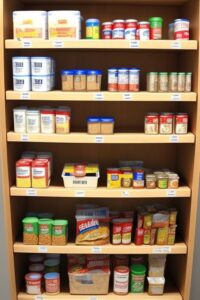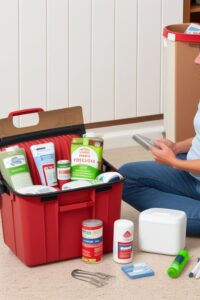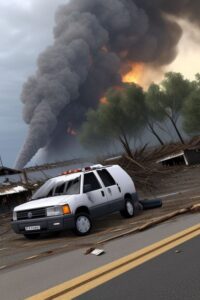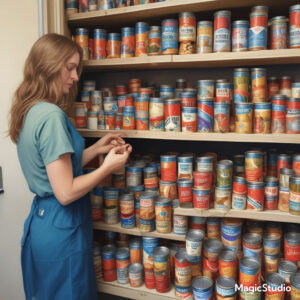Hello, preparedness fans! FEMA, the Federal Emergency Management Agency, has outlined a specific list of items that every American should have at home to be prepared for various man-made or natural disasters. This general emergency kit can prepare you and your family for anything from tornadoes to hurricanes to pandemics. Today, we`re going to go through each of the items in the FEMA emergency supply kit. Additionally, I’ll recommend a few extra items to enhance your emergency kit.
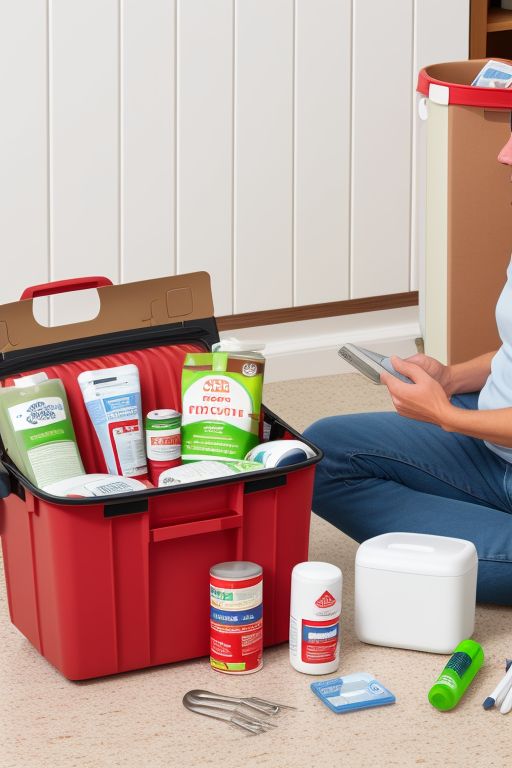
- Water
FEMA recommends having one gallon of water per person per day for three days. This equates to 15 gallons for a family of five. This water will be used for drinking, sanitation, and cooking. It`s essential for emergencies where access to clean water might be compromised, such as during an earthquake, hurricane, or power outage affecting well pumps. - Emergency Food
FEMA suggests a three-day supply of non-perishable food for each person. This includes items like canned goods, pasta, or military MREs (Meals Ready-to-Eat). You can also choose freeze-dried food buckets, which are easy to store and have a long shelf life. - Survival Radio
An emergency crank radio, like the Voyager, is indispensable. This device keeps you updated on news and emergency alerts during power outages. Consider radios with solar charging, USB ports, and built-in flashlights. - First Aid Kit
A basic first aid kit is a must. It should include all essential items to treat cuts, burns, and other minor injuries. In an emergency, when you might not have access to medical facilities, having a first aid kit can prevent minor injuries from becoming severe. - Emergency Whistle
Whistles are crucial for signaling for help in situations like building collapses caused by tornadoes or earthquakes. - Dust and Respiratory Masks
Dust masks are necessary for protection from harmful particles in events like forest fires or pandemics. N95 respirators are ideal as they filter 95% of particles, including smoke and viruses. - Duct Tape and Plastic Sheeting
These are essential for creating a sealed space during radiological or biological threats. While extreme, they can be invaluable in specific emergency scenarios. - Moist Towelettes, Garbage Bags, and Plastic Ties
These supplies are necessary for waste disposal when running water is unavailable. Garbage bags can be used to line toilets or create makeshift bathrooms. - Utility Tools
These tools are essential for shutting off utilities like gas and water. Be sure you have the appropriate tools for your specific home. - Manual Can Opener
If your emergency food supply includes canned goods, a can opener is indispensable. Don`t overlook this simple yet crucial tool. - Paper Maps
In emergencies, physical maps are essential if digital navigation is down. Maps help locate essential services or escape routes. - Flashlights & Spare Batteries
Flashlights are essential for navigating in the dark during power outages. Opt for omnidirectional flashlights to light up rooms and keep hands free.
Additional Recommendations
- Cash Reserve
Cash can be crucial when power outages prevent electronic transactions. Keep small bills on hand for buying necessities. - Water Purification System
A water filtration system can extend your water supply in prolonged emergencies by making water from natural sources safe to drink. - Rubber Gloves
Rubber gloves are useful for maintaining hygiene during waste disposal or medical emergencies and can protect you in a pandemic situation. - Portable Stove
A propane camping stove can be invaluable if you lose power and need to cook food or boil water. Make sure to have waterproof matches or a lighter.
Adhering to FEMA`s guidelines and adding these extra items will better prepare your household for emergencies. Stay prepared and stay safe!

